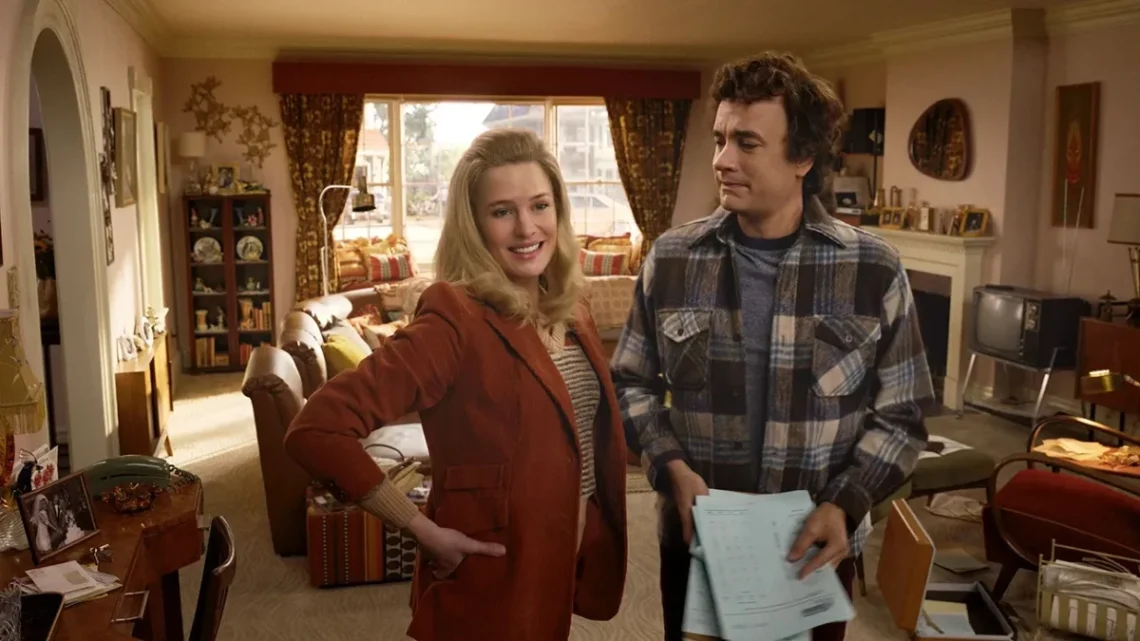Tropic Sprockets / Here
By Ian Brockway
Director Robert Zemeckis, (Forrest Gump) in many ways a modern Frank Capra, returns with “Here.” The film stars Tom Hanks and Robin Wright Penn. It is a spiritual sequel to the aforementioned “Forrest Gump.” Technically the presentation is flawless with crisp cinematography and a fluidity of time and space. In terms of story, however the momentum lags with its dramatic repetition and cloying tone.
Tom Hanks is Richard, a frustrated artist turned insurance man who lives in his parents’ house with his wife, Margaret (Robin Wright Penn). For the first years they are very happy and have a daughter Vanessa (Albie Mander). Yet soon they drift apart and begin to argue, partially because Richard ‘s parents still live with them. Margaret hates the house.
Throughout the film, the house itself goes through many changes. Once inhabited by an avid pilot and his wife in the 1920s and later, the home of Leo (David Fynn) the fictional inventor of the Relax-Y-Boy recliner.
The small Colonial home alternates between confusion and tranquility, originally the amorous ground of indigenous lovers (Joel Oulette and Danni McCallum). The grounds of the house are marched upon by Benjamin Franklin and his illegitimate son William (Daniel Betts).
We see the living room of the house shimmer and drift through time and the passage of generations like an abstract painting in melancholy motion.
The house is its own living ghost through fire and ice, the indigenous people and the arrogant march of colonialists. Through fire and flood, the living room floor remains intact. These passages are masterful.
The film gets bogged down by endless crises, parental and domestic strife, dancing, cataclysms, and drama. The episodes become soapish. Leo is over-the-moon excited by fame and invention. Then Richard’s father Al (Paul Bettany) is anxious and worried about being a failure. But the pathos is treated as a sitcom, and all seems heavy and simplistic.
Emotions are in neutral.
Richard and Margaret become skittish and passive.
It is startling that Hanks and Penn are seamlessly envisioned as young through the technology of artificial Intelligence, but the entire film cannot hang on such wizardry, however great it may be.
The endless comings and goings feel noisy and cacophonous in momentum—all too busy.
Couples live, dance, eat and argue but the emotional effect is strangely less than striking.
The one singular perspective of the living room is novel and daring, clearly illustrating a circus of American life, but the tone is oddly generic and ready-made: a Hallmark card as if projected by Josef Albers.
Write Ian at [email protected]
[livemarket market_name="KONK Life LiveMarket" limit=3 category=“” show_signup=0 show_more=0]






No Comment